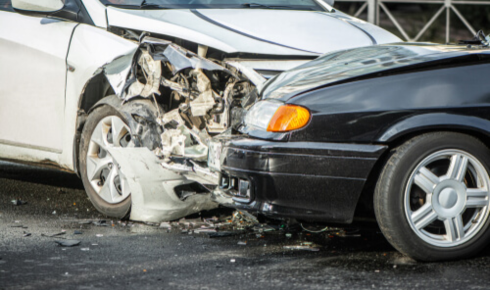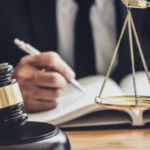If you were hurt in a Baltimore car accident caused by a drunk driver, you are not alone. Each year, alcohol-related crashes in Maryland cause devastating injuries, property loss, and fatalities. Victims often face overwhelming medical bills, time away from work, emotional trauma, and lasting physical pain. An experienced Baltimore car accident attorney can help you navigate these challenges and pursue the compensation you deserve.
While the impaired driver may face criminal DUI charges, that does not automatically cover your personal losses. To recover compensation, you must pursue a civil claim or lawsuit. This process can be complicated, but a Baltimore car accident attorney can investigate the crash, collect critical evidence, and stand up to insurers who often downplay drunk driving claims.
What Steps Should You Take After a Drunk Driving Accident?
After a drunk driving accident, your priority should be safety. Call 911 to report the crash and seek immediate medical attention, even if injuries seem minor. Next, gather evidence by taking photos, noting witness information, and obtaining a copy of the police report, which is crucial for proving impairment. Avoid discussing fault with the other driver or insurers.
Finally, consult an attorney to protect your rights and pursue fair compensation. The actions you take immediately after the crash can make or break your case.
- Report the Accident to the Police
Always call 911. Police officers can administer sobriety or breath tests to the suspected drunk driver. These test results, along with the official crash report, provide some of the most substantial evidence in proving intoxication and liability. - Seek Immediate Medical Care
Your health comes first. Even if your injuries seem minor, some conditions, such as concussions, internal bleeding, or soft-tissue injuries, may not appear right away. Medical documentation also strengthens your case by connecting your injuries directly to the crash. - Gather Evidence at the Scene
If it is safe, collect as much information as possible. Take photos of both vehicles, skid marks, alcohol containers, injuries, and the surrounding roadway. Ask witnesses for their contact information, as their testimony may help confirm the driver’s behavior before the crash. - Keep Detailed Records
Create a file that includes medical reports, hospital bills, therapy notes, prescription costs, pay stubs showing lost wages, and repair estimates. These records help determine the full financial impact of the crash. - Understand the Difference Between Criminal and Civil Cases
A drunk driver may be arrested and prosecuted, but criminal charges only punish the offender; they do not address the underlying issue that led to the offense. To secure compensation for your injuries and losses, you must file a civil claim separately. A Baltimore attorney ensures your rights are protected in both processes.
How Is Liability Proven in a Drunk Driving Crash?
Proving fault in a DUI-related crash goes beyond just saying the other driver was drunk. Your attorney must connect the driver’s intoxication directly to the crash and your resulting damages. This often requires gathering multiple forms of evidence that, when combined, create a strong case. Evidence commonly used includes:
- Police Reports and BAC Results: These official documents provide some of the most substantial proof, showing that the driver was legally impaired at the time of the accident. Breathalyzer or blood test results, along with officer observations, establish intoxication beyond doubt and create a legal record that supports your claim.
- Witness Testimony: Passengers, bystanders, or other drivers may have observed the impaired driver’s reckless behavior before or during the crash. Their accounts can describe swerving, speeding, or running lights, which helps establish how intoxication directly led to the collision.
- Video Footage: Dashcams, surveillance cameras, or traffic cameras can capture the accident itself or the driver’s erratic actions leading up to it. Visual evidence is especially persuasive in court and can counter attempts by the defense to shift blame.
- Medical Records: These documents prove that the injuries you suffered were caused by the crash and not by pre-existing conditions. Doctors’ notes, treatment records, and diagnostic tests show the physical impact of the crash, strengthening the connection between the accident and your damages.
- Accident Reconstruction Experts: In contested cases, experts may recreate the scene to establish precisely how the impairment contributed to the collision. Using scientific analysis of vehicle speeds, road conditions, and points of impact, they can demonstrate that intoxication was the primary factor contributing to the accident.
How Maryland’s Contributory Negligence Rule Affects DUI Cases
Unlike many states, Maryland follows the strict doctrine of contributory negligence. Under this rule, if you are found even 1% at fault for the accident, you may be barred from recovering any compensation at all. This differs significantly from comparative negligence systems in other states, where fault is divided, and victims can still recover damages even if they share some blame. In Maryland, however, insurers and defense attorneys often seize on this rule to minimize payouts or deny claims outright. Victims also wonder how long most car accident settlements take, since delays can further complicate recovery.
For example, if you were driving slightly over the speed limit, failed to signal a lane change, or were distracted at the time of the impact, the opposing party may argue that your actions contributed to the crash, even if the other driver was clearly intoxicated. Such arguments can be enough to undermine your case if not carefully challenged.
This harsh rule makes it especially crucial to work with an experienced attorney who understands how to gather evidence, challenge weak defenses, and demonstrate that the drunk driver’s impairment was the true cause of the accident. Strong legal representation can mean the difference between losing your claim entirely and securing the compensation you deserve.
What Compensation Can You Recover After a DUI Crash in Baltimore?
The compensation available after a DUI crash in Baltimore depends on the seriousness of your injuries, the financial toll of your recovery, and the long-term effects on your life. Because drunk driving accidents are often severe, victims may be entitled to a wide range of damages designed to address both immediate costs and future needs. These may include:
- Medical Expenses: Compensation covers more than just the initial emergency room visit. Victims can recover costs for ambulance services, hospital stays, surgeries, ongoing rehabilitation, prescription medications, and any necessary medical equipment. In cases of permanent injury, future treatment, long-term care, and home modifications may also be included to ensure you receive the ongoing support you need.
- Lost Wages and Reduced Earning Capacity: Serious injuries often keep victims out of work for weeks or months. Beyond these missed paychecks, you may also face reduced earning capacity if you cannot return to your previous role or must shift to a lower-paying job. This category accounts for both your immediate losses and the long-term impact on your financial stability.
- Pain and Suffering: Drunk driving crashes leave more than physical scars. Victims often endure chronic pain, anxiety, depression, post-traumatic stress disorder (PTSD), and reduced enjoyment of daily life. These non-economic damages recognize the lasting emotional and psychological burden caused by the crash.
- Property Damage: Your vehicle and personal belongings damaged in the accident can be repaired or replaced through compensation. This includes not only the cost of fixing or replacing your car but also damaged items inside the vehicle, such as phones, laptops, or child safety seats.
- Wrongful Death Damages: In the most tragic cases, when a drunk driving crash results in loss of life, surviving family members may pursue wrongful death damages. These can cover funeral and burial expenses, loss of financial contributions, and the profound loss of companionship and emotional support. Such claims ensure families are not left carrying the financial and emotional weight of another’s reckless decisions.
How Do Insurance Companies Handle Drunk Driving Accidents?
You might assume liability is obvious in DUI cases, but insurers are still motivated to protect their bottom line by minimizing payouts. Even when a driver’s intoxication is apparent, adjusters often search for ways to reduce or deny your claim. Common tactics include:
1- Arguing that your medical treatment was unnecessary or excessive: Insurers may challenge hospital stays, physical therapy, or future treatment recommendations, claiming they go beyond what is “reasonable.”
2- Questioning whether the crash caused all your injuries: If you had a pre-existing condition, insurers may argue that the accident merely aggravated it rather than caused new harm, reducing what they’re willing to pay.
3- Offering a quick, low settlement before the true extent of your losses is known: This strategy pressures victims into accepting far less than they’ll ultimately need for ongoing medical care or lost income.
4- Delaying the process in hopes you will accept less: Prolonged investigations, repeated document requests, or slow communication are designed to frustrate you into settling cheaply.
Due to these tactics, it’s crucial to have an attorney who understands how Baltimore insurers handle DUI crash claims. A skilled lawyer gathers strong evidence, works with medical experts, and negotiates aggressively to ensure the settlement reflects the full scope of your damages, not just what the insurer wants to pay.
What Deadlines Apply in Maryland DUI Accident Claims?
Maryland law imposes strict statutes of limitations that determine how long you have to file a claim after a DUI accident. Missing these deadlines can result in losing your right to recover compensation, no matter how strong your case may be. The key deadlines include:
Personal Injury Claims: Victims typically have 3 years from the date of the accident to file a lawsuit seeking compensation for injuries, medical costs, lost wages, and pain and suffering. This window ensures victims act promptly while evidence and witness testimony are still fresh.
Property Damage Claims: You also have 3 years from the date of the accident to pursue reimbursement for vehicle repairs, replacement, or other damaged personal property. Acting quickly can help avoid disputes with insurers who may attempt to undervalue your losses.
Wrongful Death Claims: Families who lose a loved one in a drunk driving crash have 3 years from the date of death to bring a wrongful death action. This claim can provide financial relief for funeral expenses, lost income, and loss of companionship.
While three years may sound like a long time, waiting too long can severely weaken your case. Evidence can disappear, memories can fade, and insurance companies may take advantage of delays. An experienced attorney ensures your claim is filed on time, evidence is preserved, and your right to compensation is fully protected.
What Evidence Strengthens a Drunk Driving Accident Claim?
The stronger your evidence, the higher your chances of securing fair compensation. Essential proof includes:
- Police reports and DUI arrest records documenting intoxication.
- Hospital and medical records showing injury severity and treatment.
- Photos and videos of the crash scene and your injuries.
- Eyewitness testimony confirms the driver’s reckless behavior.
- Financial records proving lost income, expenses, and long-term costs.
Collecting this evidence quickly is critical because witness memories fade and physical evidence may be lost.
How Can a Baltimore Car Accident Attorney Help in Drunk Driving Cases?
A skilled Baltimore car accident attorney does far more than file paperwork. They investigate the crash thoroughly, gathering BAC test results, police reports, and eyewitness testimony to prove liability. Attorneys also preserve evidence such as surveillance footage and dashcam recordings. By consulting medical experts, they document the full extent of injuries and work with financial specialists to calculate lost wages, reduced earning capacity, and future medical needs.
Attorneys also protect you against insurance company tactics. Insurers often undervalue DUI accident claims, delay payments, or push lowball settlements. A lawyer negotiates firmly, ensuring your damages are not minimized. If a fair settlement is not offered, they prepare to take your case to trial. With expert testimony and strong evidence, they present a compelling case, so you are not left paying for another driver’s reckless decision.
FAQs
Can I still recover damages if the drunk driver is convicted of DUI?
Yes. A criminal conviction strengthens your civil case but does not replace it. You must still pursue compensation through a personal injury claim.
What if the drunk driver has no insurance?
You can use your own uninsured/underinsured motorist coverage. An attorney can help explore these options and ensure every source of compensation is considered.
Can I sue the bar or restaurant that overserved the driver?
Unlike some states, Maryland does not have a “dram shop law.” Liability almost always falls solely on the drunk driver.
Do DUI crashes lead to higher settlements?
Often, yes. Because drunk driving is considered reckless and dangerous, settlements or jury awards can be higher compared to ordinary accidents.
How long does it take to resolve a DUI accident claim?
It depends on the complexity of the case. Some settle in months, while others requiring trial can take a year or more.



